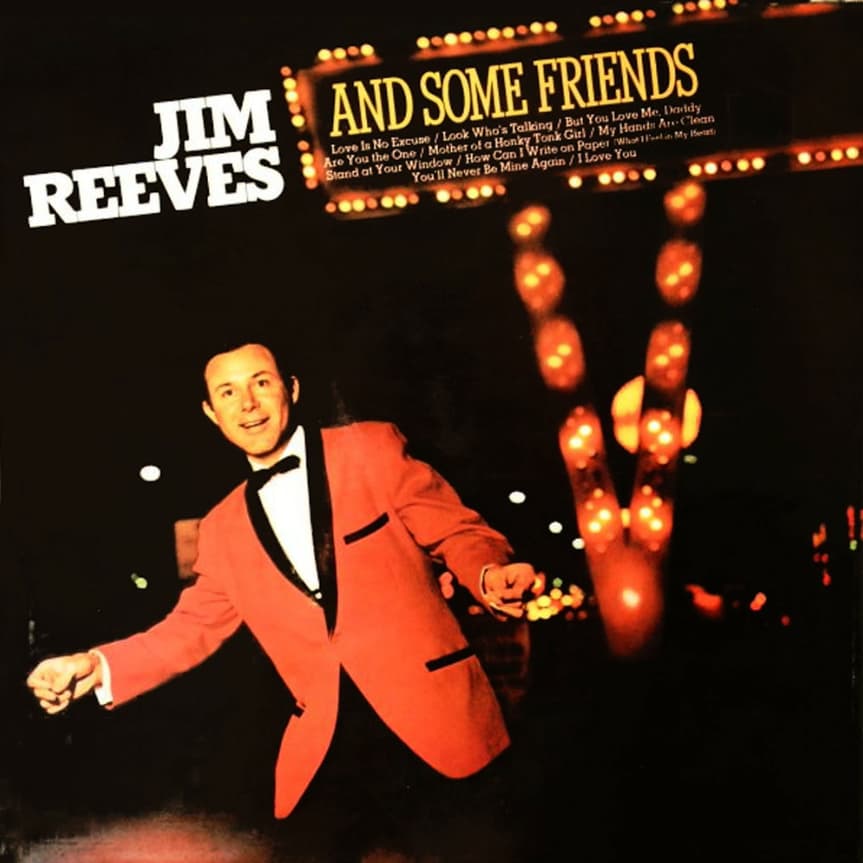
Jim Reeves and Ginny Wright – “I Love You”: The Tender Breakthrough That Heralded a New Star
There are songs that merely entertain, and then there are those that mark a pivotal shift in a legendary career, providing a glimpse of the greatness to come. “I Love You,” the surprisingly tender 1954 duet between Jim Reeves and Ginny Wright, belongs firmly in the latter category. For those of us who appreciate the subtle evolution of classic country music, this recording, released on the Fabor label (Catalog No. 101), serves as a crucial bridge—a step away from the raw energy of honky-tonk and a tentative first embrace of the smooth, intimate Nashville Sound that Reeves would later define.
The song was a significant success right out of the gate, offering a gentle, almost conversational piece of shared affection that resonated deeply with the listeners of the day. Released in early 1954, it climbed to a peak position of No. 3 on the Billboard country and western juke box chart and remained a fixture for an impressive 22 weeks. This wasn’t just a hit; it was proof that Jim Reeves, who had just broken through with the novelty tune “Mexican Joe” the previous year, possessed the emotional depth and vocal control necessary for enduring balladry.
The story behind the recording takes us back to late 1953, the formative years of both artists’ careers, and the energetic scene surrounding the Louisiana Hayride in Shreveport. Ginny Wright (born Ethel Virginia Henderson), a talented country vocalist, was signed to the new Fabor label, and the idea was hatched by producer Fabor Robison to pair her with the rising star, Reeves, for a duet. The track was laid down with members of the famed Louisiana Hayride Band, including the future legend Floyd Cramer on piano, lending the recording an authentic, yet polished feel. It’s a wonderful detail to consider: two future icons, working side-by-side on a simple love song in a little studio in Shreveport, Texas, unknowingly creating a piece of country music history.
In listening to “I Love You” today, what truly stands out is the vocal arrangement. It is not a classic call-and-response duet in the traditional sense. Instead, Ginny Wright takes the leading vocal role, her voice clear and earnest, carrying the melody with a lovely sincerity. Jim Reeves enters the song not as a singer, but as a speaker. His contribution is a famous, rich-toned recitation—a spoken word bridge that delivers the core sentiment of the song with a warmth and intimacy that was utterly captivating and unique for the time. This recitative style became a hallmark of his later, enormous hits like “Bimbo” and “He’ll Have to Go,” solidifying his image as ‘Gentleman Jim.’ This early duet is where that signature style—that velvety, conversational baritone that felt like he was speaking only to you—truly began to captivate the masses.
For those of us who cherish the music of the 1950s, the charm of “I Love You” lies in its unhurried pace and genuine emotional vulnerability. It’s a testament to a time when a simple statement of affection could climb the charts, and when the subtle artistry of a producer like Fabor Robison could perfectly frame the burgeoning charisma of two stars. It’s a song of quiet devotion, a tender pledge of fidelity, and a vital early chapter in the story of one of country music’s most enduring voices.